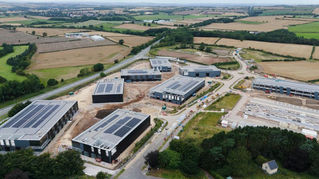Buildings, waste water and the food chain are critical components in preventing a future epidemic in humans, animals or plants.

UK Research and Innovation (UKRI) is investing more than £1 million in creating 12 new national and international teams. These teams will bring together researchers from across the spectrum to reduce the chances and impact of another COVID-19, foot and mouth or Dutch elm disease.
The teams will be able to apply for further funding to develop their ideas.
Research projects
Untapped potential of earthen bricks
Experts in architecture, bioscience, engineering and urban planning, with local masons, builders and residents, will harness the untapped potential of earthen bricks.
This will protect people against mosquito-borne diseases like malaria, zika and dengue, through locally-driven and climate-adapted sustainable innovations in building construction and design.
New building design and ventilation guidelines
A team with diverse skills will create new building design and ventilation guidelines that protect against different diseases and levels of vulnerability for both new and existing buildings.
They were inspired by the COVID-19 pandemic’s impact on indoor spaces, and the increasing outbreaks of airborne diseases like measles, tuberculosis or the flu.
Bringing together experts and policymakers
A new team in Scotland aims to bring together existing experts and policymakers who have worked, separately, on flu, COVID-19, monkey pox, foot and mouth and other diseases that affect humans and animals.
This will help us learn from past epidemics and plan for the future while reducing inequalities from the outset.







